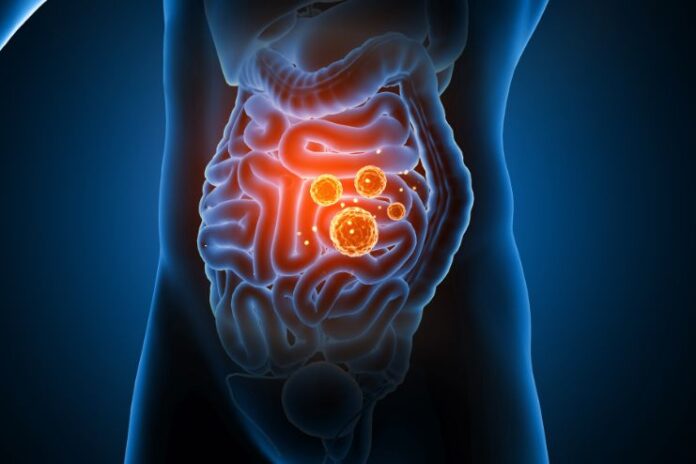One of digestion’s most essential roles is protecting overall health and well-being—but what happens when it goes haywire? If your digestive system isn’t functioning properly, your body struggles to absorb the vital nutrients, vitamins, and minerals it needs. Over time, this can lead to various health issues, affecting not just your gut but also your energy levels, immune system, skin, and even mental clarity.
In this article, we will look at the vital link between digestion and health and the often-overlooked consequences of bad digestion. Most importantly, we’ll identify seven warning signs that may mean trouble in your gut.
Read More: Gut Health Hacks: The Best Morning Foods to Kickstart Digestion
7 Warning Signs & Side Effects of Poor Digestion You Shouldn’t Ignore
1. Persistent Bloating

Bloating is a frequent but annoying symptom of impaired digestion, leading to abdominal discomfort. It happens when the body finds it difficult to break down and absorb nutrients efficiently. This inability results in gas buildup in the digestive system.
Persistent bloating is also caused by conditions like irritable bowel syndrome (IBS), food intolerance, and imbalance of gut microbiota.
How to Reduce Bloating:
- Drink more water to help with digestion and prevent gas accumulation.
- Eat mindfully by chewing slowly and thoroughly for easier digestion.
- Add probiotics to support a healthy gut microbiome.
- Steer clear of carbonated drinks and foods high in sodium that cause bloating.
- Exercise regularly to enhance digestion and alleviate bloating.
Read More: 10 Ways To Prevent Stomach Bloating
2. Chronic Indigestion
Dyspepsia, or chronic indigestion, is a digestive discomfort that can disrupt your daily life. When digestion is disrupted, the stomach is unable to digest food, and there is chronic digestive distress. Chronic indigestion shows symptoms such as bloating, nausea, and heartburn. These are caused by overeating, eating spicy or fatty foods, stress, or underlying illnesses such as gastroesophageal reflux disease (GERD) or gastritis.
How to Manage Indigestion:
- Eat small, frequent meals to support digestion.
- Stay away from trigger foods that are spicy, fatty, or acidic.
- Eat mindfully to avoid overeating and avoid indigestion.
- Use herbal remedies like ginger or peppermint tea for digestive relief.
- Consult a doctor if the symptoms do not go away to rule out underlying conditions.
3. Acid Reflux
Acid reflux happens when stomach acid flows back up into the esophagus, producing a burning discomfort in the chest (heartburn). Ineffective digestion weakens the lower esophageal sphincter (LES), causing acid to leak out and inflame the esophagus. Obesity, hiatal hernias, smoking, and eating acidic or spicy foods are common causes of acid reflux.
How to Manage Acid Reflux:
- Eat smaller portions to avoid overloading the stomach.
- Steer clear of acidic foods such as citrus fruits, tomatoes, and caffeine.
- Keep your weight at a healthy level to put less pressure on the stomach.
- Raise the head of your bed to avoid nighttime reflux.
- Indulge in stress-relieving activities such as meditation and deep breathing.
Read More: Can Acid Reflux Lead to More Serious Health Issues? What You Should Know
4. Irregular Bowel Movements

Irregular bowel movements, including constipation, diarrhea, or erratic changes in bowel habits, indicate digestive dysfunction. Poor digestion disrupts the movement of waste through the gastrointestinal tract, leading to inconsistent stool patterns. Contributing factors include dehydration, low fiber intake, gut flora imbalances, and digestive disorders like irritable bowel syndrome (IBS) and inflammatory bowel disease (IBD).
How to Promote Regular Bowel Movements:
- Boost fiber consumption by including whole grains, fruits, and vegetables in your diet.
- Drink adequate water to promote smooth digestion and the flushing out of waste.
- Add probiotics to maintain gut bacteria balance and soft stools.
- Exercise regularly to stimulate bowel movements.
- Seek the advice of a healthcare provider to determine underlying digestive disorders.
5. Chronic Fatigue
Chronic fatigue may be caused by poor digestion due to inefficient nutrient absorption. If you have a weak digestive system, the necessary nutrients such as proteins, carbohydrates, and vitamins are not efficiently used. This inefficiency leads to long-term tiredness, mental confusion, and reduced energy levels. Nutrient deficiencies caused by digestive issues can significantly impact overall vitality.
How to Combat Fatigue Through Digestion:
- Prioritize a fiber, vitamin, and mineral-rich diet.
- Stay hydrated to support energy metabolism and digestion.
- Take probiotics to enhance gut health and nutrient absorption.
- Exercise regularly to enhance digestion and energy.
6. Nutritional Deficiencies
Improper digestion restricts the body from efficiently absorbing necessary nutrients, resulting in a deficiency of vitamins and minerals. The most common deficiencies are of vitamin B12, D, and K, iron, and calcium. The deficiencies can cause anemia, brittle bones, and a weakened immune system, impairing general health.
How to Prevent Nutritional Deficiencies:
- Consume a balanced diet rich in nutrient-rich foods such as lean proteins, whole grains, and greens.
- Include necessary vitamins and minerals via diet or supplements if needed.
- Maintain gut health with probiotics to promote effective nutrient absorption.
- Correct underlying digestive problems to promote overall digestion and avoid deficiencies.
7. Unexplained Weight Changes

Poor digestion can cause sudden weight fluctuations, leading to either weight gain or weight loss. Malabsorption prevents the body from receiving adequate nutrients, resulting in unwanted weight loss. On the other hand, digestive issues, hormonal imbalance, or overindulgence in refined foods result in weight gain. Other underlying conditions like celiac disease, IBD, or chronic inflammation in the gut can also be involved.
How to Maintain a Healthy Weight:
- Address digestive issues that impact metabolism and nutrient absorption.
- Stick to a well-balanced diet to enhance digestion and weight control.
- Avoid processed and detrimental foods that lead to digestive discomfort.
- Maintain physical activity to control metabolism and enhance gut function.
- Consult professionals if there is unexplained weight gain or loss.
Conclusion:
Recognizing the warning signs of poor digestion is crucial for maintaining overall health. Persistent bloating, discomfort due to indigestion, and acid reflux usually suggest digestive imbalances. Moreover, irregular bowel movements, ongoing fatigue, and nutritional deficiencies can also impact energy levels and well-being. Unexplained weight fluctuations can also be a sign of malabsorption or underlying digestive disorders.
Prioritize mindful eating, adequate hydration, and healthy lifestyle changes. These can help promote digestion and improve your overall health. If symptoms continue, it is advised to consult a medical professional to treat the underlying cause, if any. A healthy digestive system is key to long-term vitality. Here’s your chance to take a proactive step towards a healthy gut, today!
We hope this article helped you gain insights, and a few tips to maintain a good gut. We would love to hear your thoughts on this in the comments!
-
Feb 2024Written by Ankita
-
Apr 2025Edited by Vaishnavi
References
- https://www.hopkinsmedicine.org/health/wellness-and-prevention/bloating-causes-and-prevention-tips
- https://www.webmd.com/heartburn-gerd/indigestion-overview
- https://badgut.org/information-centre/a-z-digestive-topics/ibs/
- https://www.ncbi.nlm.nih.gov/books/NBK553106/
- https://pmc.ncbi.nlm.nih.gov/articles/PMC8070135/
- https://www.webmd.com/digestive-disorders/malabsorption-syndrome




















